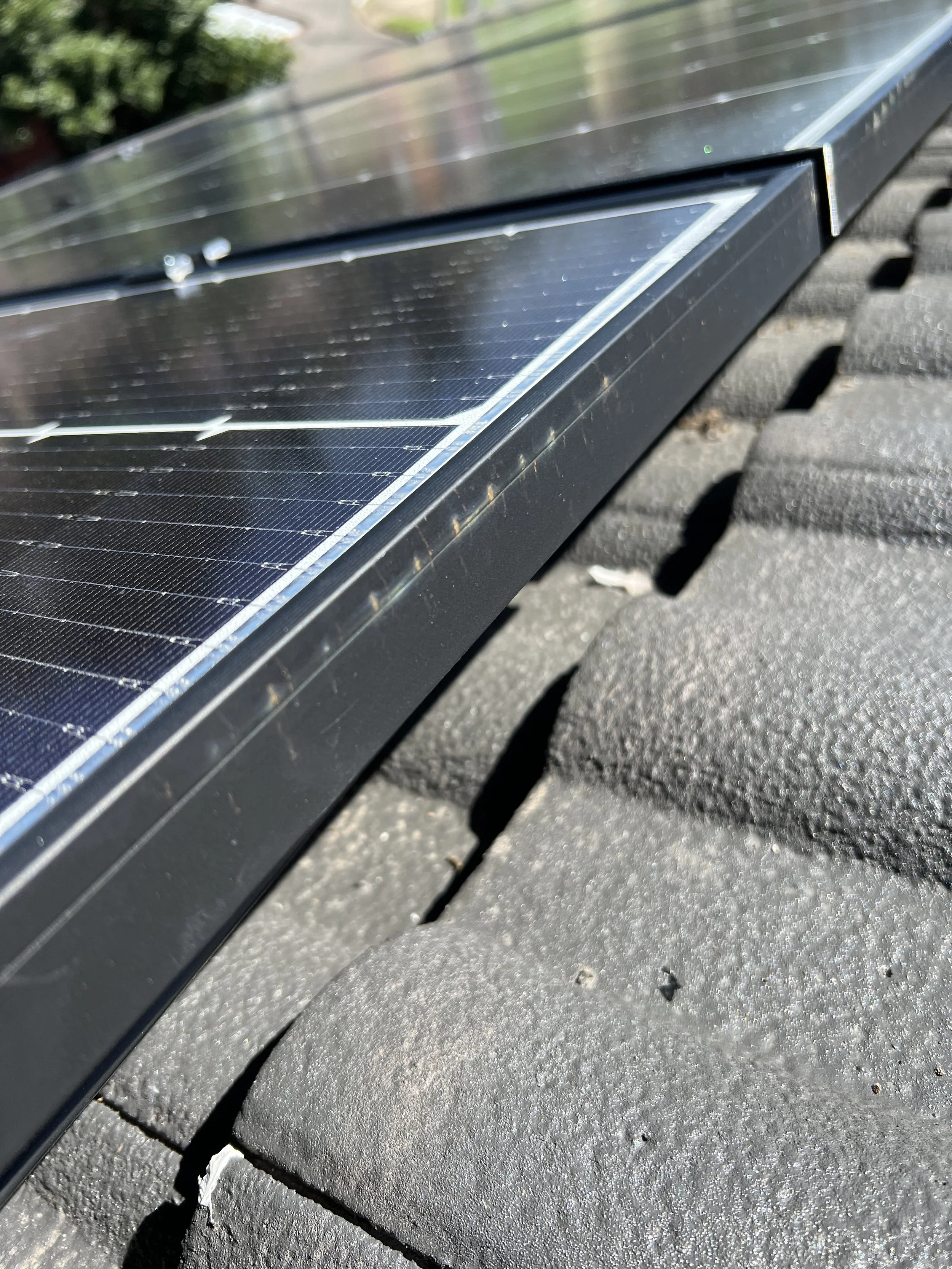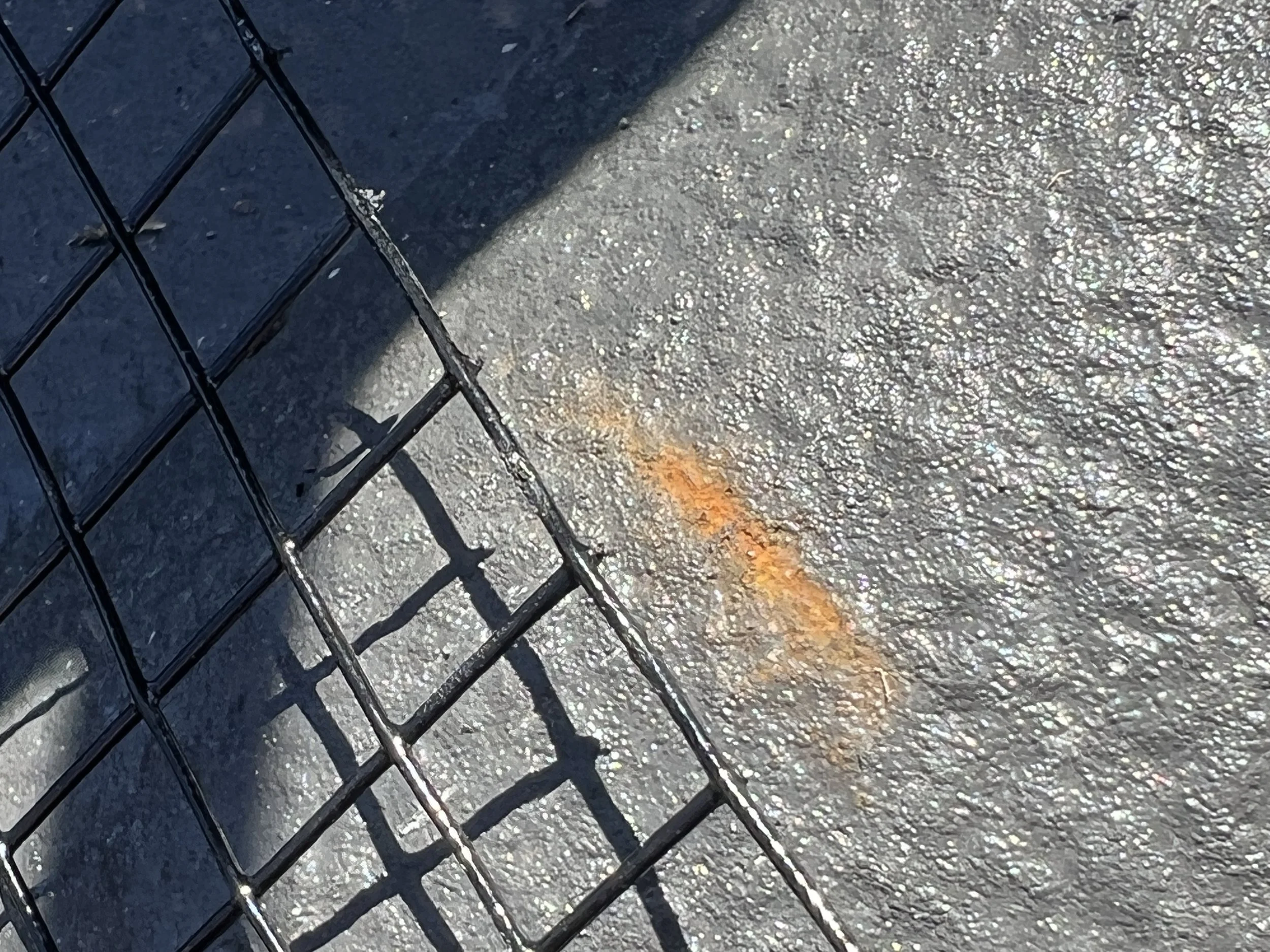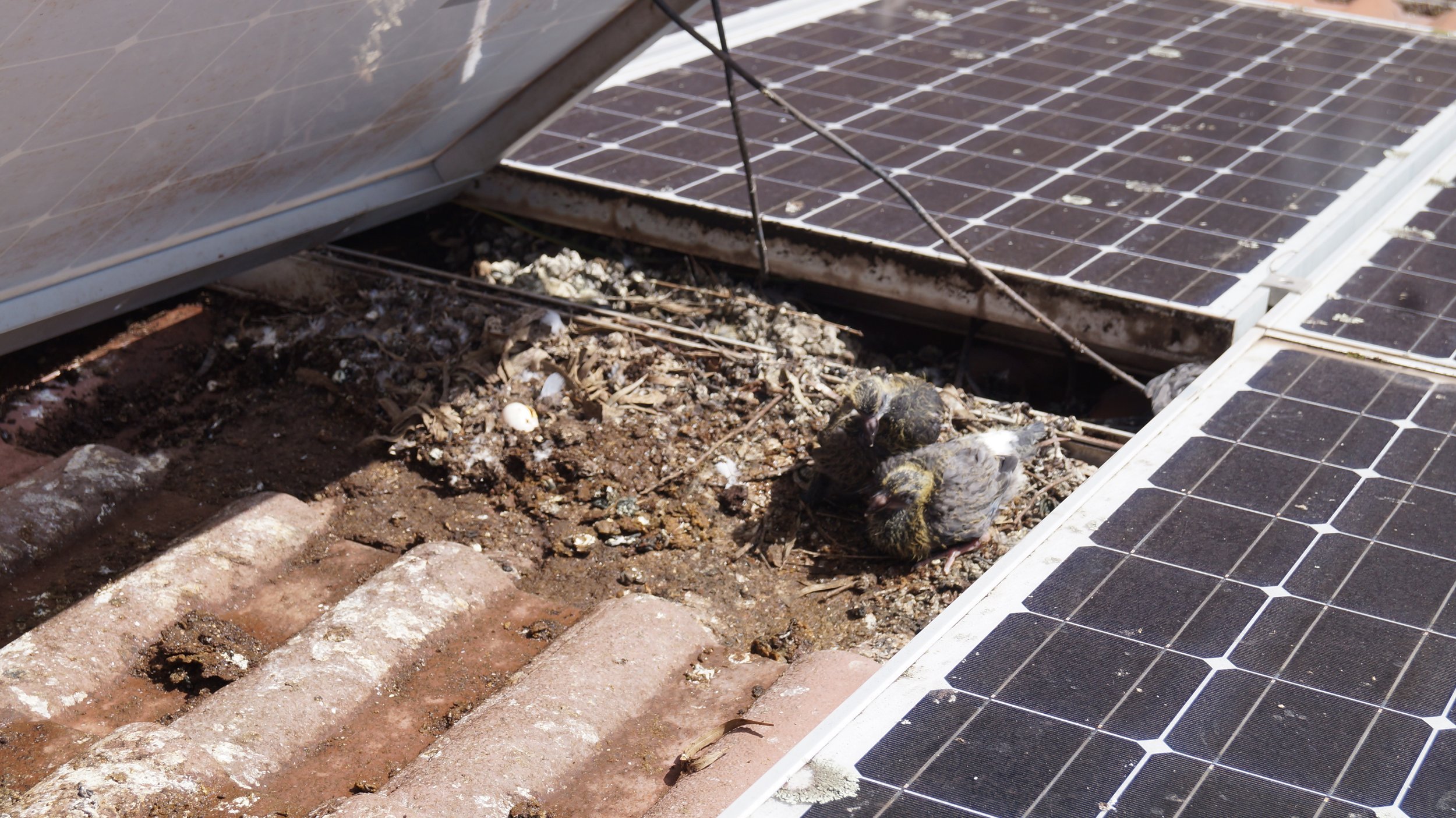Mandatory Licensing
Key Takeaway
Birdproofing your solar system is electrical work under Australian law.
It must be performed or supervised by a licensed electrician.
Unlicensed work can void warranties, breach safety laws and endanger lives.
1. The Legal Reality of Birdproofing Solar Panels
Birdproofing may look like a simple job but legally it is not. It involves work on or near a live solar electrical installation whch under Australian law is classed as electrical work.
Any alteration, modification or attachment to a solar system including fitting mesh or fasteners to the panel frame must be completed by a licensed electrician or a worker under their direct supervision.
The Electrical Safety Acts across Australia supported by state regulators such as NSW Fair Trading, Energy Safe Victoria and Workplace Health and Safety Queensland confirm that all electrical installation work must be performed by a licensed person or business that has undertaken the appropriate safety training.
This includes:
Attaching or fixing mesh to a solar panel frame
Working near or around live DC cabling or junctions
Installing within one metre of the Point of Attachment where the power from the street connects to the home
Because every part of a solar array is part of a live DC system, birdproofing without an electrical licence is not just illegal but extremely dangerous. Mistakes can cause arcing, short circuits or even energise the solar frame itself putting the installer and homeowner at risk.
The consequences can include:
Death or serious injury from electrocution
Electrical fires or total system failure
Voided manufacturer and home insurance warranties
If birdproofing is carried out by someone without the required electrical licence your solar warranty is automatically void under Australian consumer and safety law regardless of what the installer tells you.
2. Electrical Licensing and the Point of Attachment (POA)
What Is the Point of Attachment?
The Point of Attachment (POA) is where the power from the street connects to your property. It is usually a metal bracket or mount fixed to the roof or fascia. It is the entry point of your home’s electrical supply and remains live at all times.
Because of this, any work carried out within about one metre of the POA is legally classed as high risk electrical work.
Why Birdproofing Is Considered Electrical Work”
Birdproofing may appear to be a minor maintenance task, but it directly involves the solar electrical installation. Every part of a solar array including the frame and wiring forms part of a live DC system that carries electrical current. Installing mesh or any other material that attaches to, is fastened near or interacts with that system is legally seen as a modification to an electrical installation.
This applies to all materials not just metal. Even when non-conductive products such as plastic mesh or clips are used, installers still work within a live electrical environment where mistakes can have serious consequences. Because of this, electrical safety training and licensing are required to carry out the work safely and legally.
Examples include:
• Fixing or clipping mesh or hardware to solar panel frames
• Working near or around live DC cabling and electrical junctions
• Installing within one metre of the POA or any other live connection point
Why It Is Dangerous
Electricity does not need to be touched to cause harm. It can jump or arc through the air to nearby objects. A single misplaced clip or piece of mesh that touches a solar frame or the POA can energise the frame of a building or the entire solar array.
The result can be devastating…
• Death by electrocution
• Severe injury
• Electrical fires or system failure
• Voided solar and home insurance warranties
This is why every Australian state and territory classifies birdproofing as electrical work when it involves or is near a solar installation.
The Legal Requirement
By law, only licensed electricians or those working directly under their supervision can perform or oversee solar birdproofing work.
Each state’s electrical safety legislation confirms this:
• NSW Fair Trading under the Home Building Act 1989 and Electricity (Consumer Safety) Act 2004
• Energy Safe Victoria under the Electricity Safety Act 1998
• Workplace Health and Safety Queensland under the Electrical Safety Act 2002
• WorkSafe WA under the Electricity (Licensing) Regulations 1991
• SafeWork SA under the Electricity Act 1996
All reference the same principle:
“Any work involving the alteration repair maintenance or attachment of materials to an electrical installation must be carried out by a person holding an appropriate electrical licence.”
The Electrical Safety Office (ESO)
In Queensland all electrical work is regulated and enforced by the Electrical Safety Office (ESO) under the Electrical Safety Act 2002. The ESO is the government authority responsible for licensing, inspections and enforcement of electrical safety laws. It confirms that any work involving the installation, alteration or fastening of materials to a solar array or any task performed within one metre of a live connection such as the POA is classed as electrical work.
This applies regardless of the materials used. Even when non-conductive products are installed, workers are still in a live electrical environment where the risk of contact or arcing is real. For this reason, only a licensed electrician or someone directly supervised by one can perform this type of work.
If unlicensed people perform these tasks the ESO can issue fines, stop-work notices or prosecute both the installer and the homeowner. Penalties can reach up to $40,000 for individuals and $600,000 for businesses with further prosecution possible where death or serious injury occurs.
Doing It the Right Way
Australian Solar Mesh operates under all required electrical and pest control licences. Every installation we complete is carried out legally, safely and in full compliance with Australian standards and state regulations.
When work falls within one metre of the Point of Attachment or involves attaching any material to a solar installation it is performed or directly supervised by a licensed electrician. This ensures the work meets all electrical safety requirements, protects your solar warranty and maintains complete compliance with state laws.
Our licensing framework guarantees that every project is handled by qualified professionals not subcontractors or unlicensed operators so you can have total confidence that your solar protection system is installed correctly, lawfully and safely from start to finish.
This ensures:
• Full compliance with Australian law
• Preservation of solar and electrical warranties
• Safety for families and homes
A Message to Homeowners
Companies offering cheap solar birdproofing often do so because they are not licensed to perform electrical work. They may seem like a bargain but they are gambling with safety and lives.
Working around live electrical systems without proper licensing is not maintenance. It is illegal and dangerous. If your installer cannot show you a valid electrical licence they have no legal right to touch your solar system.
Protect your investment and more importantly protect human life. Electrical licensing is not an option. It is the law.
Legal Liability of the Homeowner
Under Australian law the person who engages unlicensed electrical work can be held legally responsible if an accident occurs. This includes homeowners who allow unlicensed installers to perform birdproofing or any modification to a solar electrical system. If an incident results in injury, death or property damage, the homeowner may face prosecution, fines and insurance refusal because they authorised unsafe and illegal work on a live electrical installation.
Hiring an unlicensed person to carry out electrical or pest control work puts lives at risk and transfers full liability to the property owner. Always confirm that the company you engage holds current electrical and pest control licences before any work begins.
3. Pest Control Licensing
Pigeons nesting under solar panels are classified as feral homing pigeons, a regulated pest species under Australian law.
To legally remove or deter them a valid pest control licence is required.
This ensures:
• Birds are managed using humane approved techniques
• The work is performed by a trained and licensed pest technician
• Compliance with environmental and biosecurity laws
Roofers, handymen, gutter cleaners and solar cleaners are not licensed to carry out pest control. Engaging an unlicensed provider for pest management is illegal and greatly increases the likelihood of spreading disease and causing ongoing contamination.
For full compliance, birdproofing must therefore be carried out under the correct electrical licence and pest control licence to meet both safety and legal standards.
Legal References:
New South Wales
• Home Building Act 1989 (NSW) – Sections 4, 12 and 14
• Electricity (Consumer Safety) Act 2004 (NSW) – Sections 7 and 10
• Electrical Safety Regulation 2015 (NSW) – Incorporates AS/NZS 3000 and AS/NZS 5033 by reference
• NSW Fair Trading – Electrical Licensing and Home Building Licence Requirements
Queensland
• Electrical Safety Act 2002 (QLD) – Sections 18, 55 and 56
• Electrical Safety Regulation 2013 (QLD) – Regulations 14 and 75
• Work Health and Safety Regulation 2011 (QLD) – Part 4.7 (Electrical Work)
• Electrical Safety Office Queensland – Safe Work on or Near Energised Electrical Installations
Victoria
• Electricity Safety Act 1998 (VIC) – Sections 42, 43 and 45
• Electricity Safety (General) Regulations 2019 (VIC) – Regulations 238 and 239
• Energy Safe Victoria – Licensed Electrical Work and Supervision Requirements
South Australia
• Electricity Act 1996 (SA) – Sections 60 and 61
• SafeWork SA – Electrical Licensing and Compliance Requirements
Western Australia
• Electricity (Licensing) Regulations 1991 (WA) – Regulations 19 and 49
• WorkSafe WA – Electrical Licensing and Supervision Requirements
All states and territories adopt the Wiring Rules AS/NZS 3000 and the Solar PV Standard AS/NZS 5033 which classify any modification or attachment to an electrical installation as electrical work.
Australian Solar Mesh operates under full electrical and pest control licensing to ensure every installation is safe, legal and compliant across all states we service including New South Wales, Queensland, South Australia, Victoria and Western Australia.
Ask These Questions Before Letting Anyone Near Your Roof
Do you hold a valid Australian electrical licence for working on solar installations?
Are you licensed to manage feral homing pigeons under pest control law?
Can you guarantee that your installation will not void my solar warranty and why?
The Cost of Getting It Wrong
A Sydney homeowner went with a cheaper installer who promised “A lifetime warranty.” Within 18 months, the mesh was rusting. Corrosion spread to the frame, the inverter failed and the entire warranty was void. The company was unlicensed and unreachable.
Total cost: $11,000 in system repairs and mesh replacement.
This isn’t a one-off. It’s common. We see it weekly.
Contact us
Ask the right questions. Protect your solar. Choose licensed.




